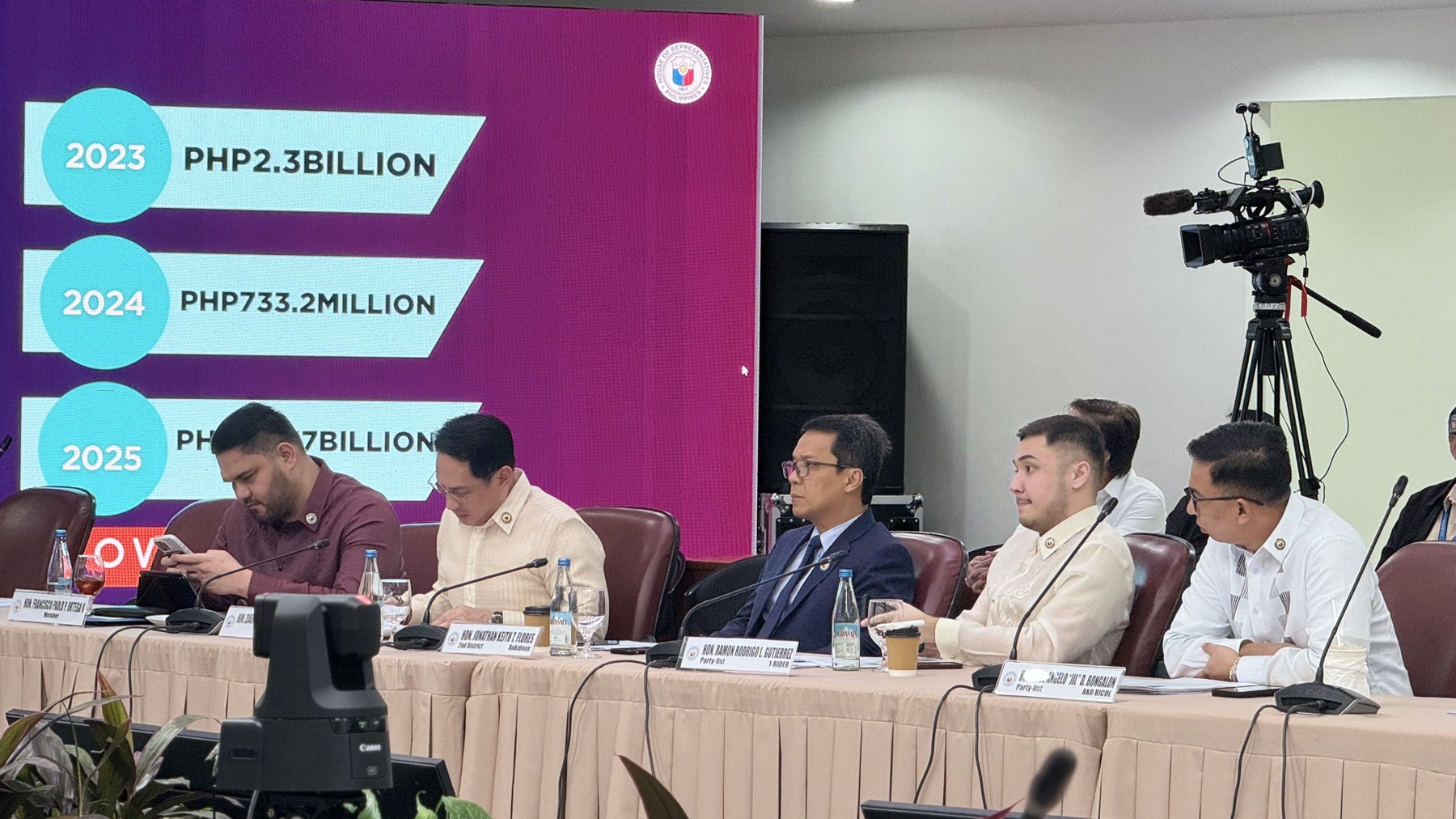
By Filane Mikee Cervantes | Philippine News Agency
A House of Representatives panel on Monday revealed that 405 out of 677 individuals listed as alleged beneficiaries of the Department of Education’s (DepEd) confidential funds during Vice President Sara Duterte’s term have no civil registry records with the Philippine Statistics Authority (PSA).
House Committee on Good Government and Public Accountability chair Joel Chua disclosed the findings during the panel’s hearing, citing PSA data received on Dec. 8.
“Tayo po ay sumulat upang isumite ang 677 pang pangalan na nakalagay sa acknowledgement receipt ng DepEd, kung saan tayo po ay binigyan ng tugon ng Philippine Statistics [Authority] dated Dec. 8, 2024. At dito kanila pong sinasabi na out of 677 individuals, 405 ay walang birth certificate or walang records sa birth certificate, or puwede nating sabihin na non-existent,” the Manila lawmaker said.
In a letter dated Dec. 5, Chua asked PSA Undersecretary Claire Dennis Mapa to authenticate the birth, marriage, and death records of 677 individuals appearing in DepEd’s acknowledgment receipts (ARs).
House Assistant Majority Leader Rep. Zia Adiong said PSA verification also showed no civil registry records for recipients “Kokoy Villamin,” Milky Secuya,” and “Alice Crescencio.”
“Non-existent. Hindi po sila, according to PSA, ay posibleng hindi po ito mga tao,” he said.
The PSA earlier confirmed that “Mary Grace Piattos,” another alleged recipient, is a fictitious identity.
The name combines a popular restaurant and a local snack brand.
Bigger picture
Deputy Majority Leader Paolo Ortega earlier warned that the use of a fabricated identity in official documents could point to systemic fraud.
Chua said the term “confidential” had been weaponized to obscure the truth and evade accountability.
“Kailangan pa rin ng safeguards, pati sa ‘confidential funds.’ Sapagka’t hindi ma-iiwasan na may mga magtatangkang gamitin ang pagka-confidential nito upang itago ang impormasyon at pang-aabuso sa tiwala ng taumbayan,” he said.
From late 2022 to the third quarter of 2023, the Office of the Vice President (OVP) spent P500 million and the DepEd disbursed P112.5 million in confidential funds.
The committee found that the expenditures lacked transparency and proper documentation.
The panel also found that special disbursing officers (SDOs) handling large sums of money were bonded at disproportionately low amounts, leaving public money vulnerable.
Chua cited the case of OVP SDO Gina Acosta, who managed P500 million with a fidelity bond of just P8 million.
Similarly, DepEd SDO Edward Fajarda oversaw P50 million with a bond of only P4 million.
“Ang halaga ng fidelity bond para sa [SDOs] ay napakababa kumpara sa pondo na kanilang hawak,” Chua said.
5K acknowledgement receipts
Adiong accused the OVP and the Duterte-led DepEd of creating nearly 5,000 acknowledgment receipts to obscure what he called a systematic misuse of public funds.
Among the fabricated identities, Adiong noted that “Milky Secuya” signed two ARs on the same day using the same pen and ink, but with completely different signatures.
Adiong further pointed out that “Alice Crescencio” was listed on three separate receipts allegedly issued in geographically distant locations: Pasay City, Iligan City, and Lanao del Sur.
“Itong pangalan po na ito ay hindi pangkaraniwan, and the chances of three different Alice Crescencios, all receiving confidential funds for different purposes from the DepEd, is extremely slim,” Adiong said.
Adding to the list, Adiong flagged receipts from “Sally” and “Shiela,” whose identical signatures appeared despite allegedly belonging to two individuals from cities over 400 kilometers apart.
“It makes you think: What are the chances that two different people, from Digos City and Surigao City, have the exact same signature?” Adiong said.
Legislative proposals
To prevent similar abuses, the committee proposed two laws: the Confidential and Intelligence Funds Act and the Act Regulating Special Disbursing Officers and Imposing Penalties for Misappropriation.
The first measure mandates stricter rules on the allocation and use of confidential funds, requiring detailed reports under oath.
The second proposal seeks to strengthen safeguards for public funds by revising fidelity bond requirements and imposing harsher penalties for violations.
“Panahon na upang magpatupad ng mas mahigpit na mga alituntunin sa paggamit ng confidential funds para sa mga confidential na gastos,” Chua said.
“Kapag nagamit na ang confidential funds para sa kanilang layunin, wala ng dahilan upang hindi maging bukas at maging transparent.”
